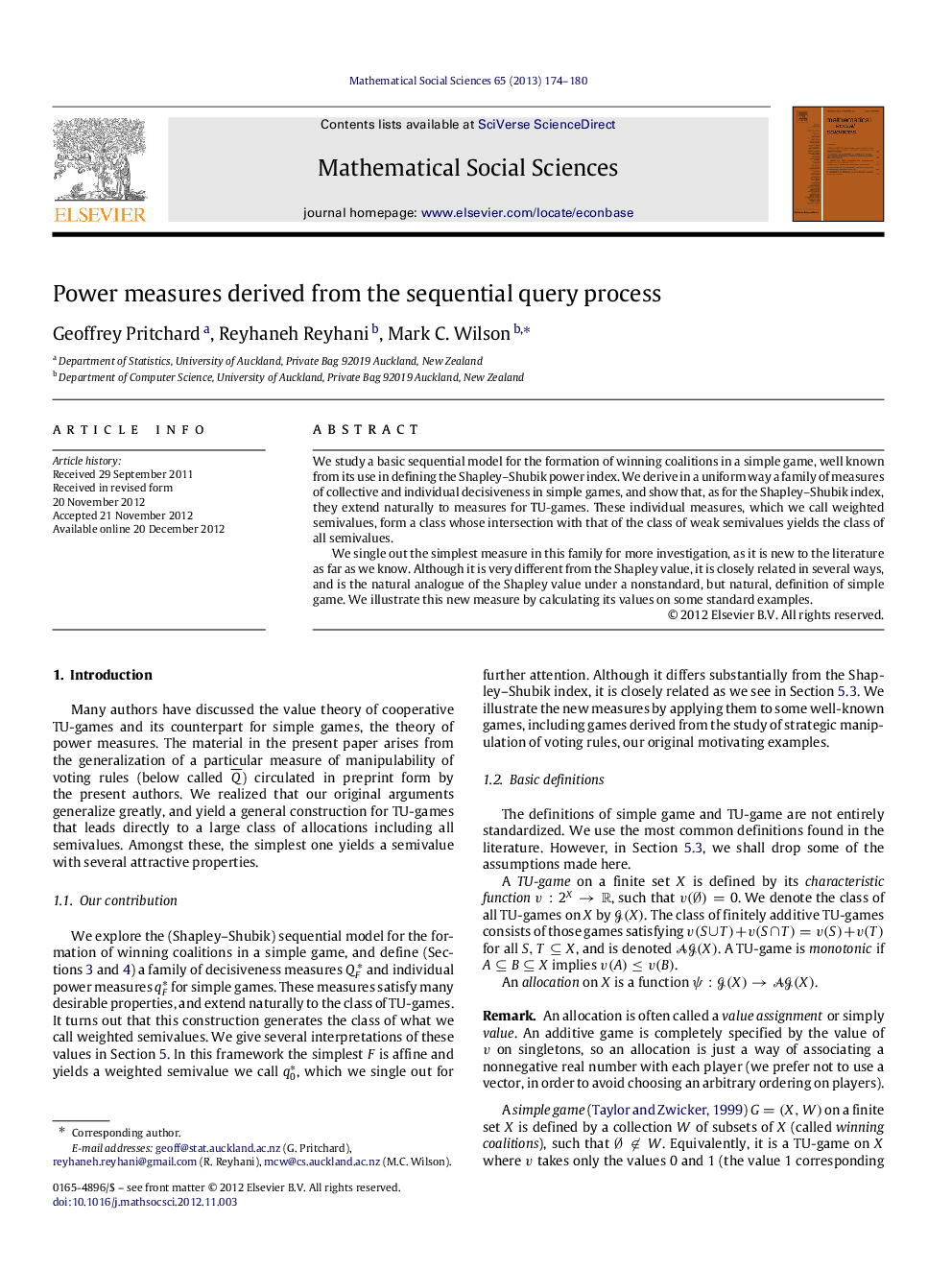| Article ID | Journal | Published Year | Pages | File Type |
|---|---|---|---|---|
| 972679 | Mathematical Social Sciences | 2013 | 7 Pages |
We study a basic sequential model for the formation of winning coalitions in a simple game, well known from its use in defining the Shapley–Shubik power index. We derive in a uniform way a family of measures of collective and individual decisiveness in simple games, and show that, as for the Shapley–Shubik index, they extend naturally to measures for TU-games. These individual measures, which we call weighted semivalues, form a class whose intersection with that of the class of weak semivalues yields the class of all semivalues.We single out the simplest measure in this family for more investigation, as it is new to the literature as far as we know. Although it is very different from the Shapley value, it is closely related in several ways, and is the natural analogue of the Shapley value under a nonstandard, but natural, definition of simple game. We illustrate this new measure by calculating its values on some standard examples.
► The sequential query process generates all semivalues, not just the Shapley value. ► We single out a new semivalue whose properties are particularly attractive.
